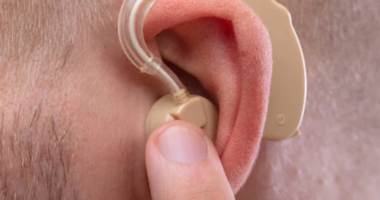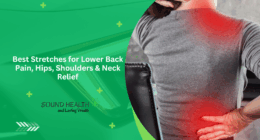How to Relieve Frozen Shoulder During Menopause: Frozen shoulder, medically known as adhesive capsulitis, is a condition marked by pain, stiffness, and a significant loss of motion in the shoulder joint. It often develops gradually and can severely impact daily activities, making simple tasks like reaching overhead or behind the back challenging. Women between the ages of 50 and 60 are most commonly affected, coinciding with the typical age range for menopause, which has led researchers and clinicians to investigate a potential connection between the two.

What Is Frozen Shoulder?
Frozen shoulder is characterized by the thickening and tightening of the shoulder joint capsule, which restricts movement and causes pain. Elizabeth Batterton, MD, a sports medicine physician at Banner Health University Orthopedic and Sports Medicine Institute in Phoenix, AZ, and a clinical associate professor at The University of Arizona College of Medicine-Phoenix, describes frozen shoulder as progressing through three distinct stages:
- Freezing Stage: This initial phase involves a gradual onset of shoulder pain that worsens over time. The pain often intensifies at night, and shoulder movement becomes increasingly limited.
- Frozen Stage: During this phase, pain may lessen but stiffness remains, severely restricting shoulder mobility.
- Thawing Stage: The final stage is marked by a gradual return of shoulder movement and reduction in stiffness, although full recovery can take months or even years.
Understanding these stages is crucial for managing symptoms effectively and setting realistic expectations for recovery.
The Link Between Frozen Shoulder and Menopause
While there is no definitive scientific proof directly linking menopause to frozen shoulder, emerging evidence suggests that hormonal changes during menopause may contribute to the development or worsening of this condition. Jocelyn R. Wittstein, MD, an orthopedic surgeon and associate professor at Duke University School of Medicine, explains that the decline in estrogen levels during menopause can affect the shoulder joint in several ways.
Estrogen plays a vital role in maintaining the health of connective tissues, including ligaments, tendons, and the joint capsule. It helps regulate collagen production, which is essential for tissue elasticity and strength. During menopause, the drop in estrogen can lead to decreased collagen turnover and increased inflammation, resulting in stiffer, less flexible shoulder tissues prone to adhesive capsulitis. Additionally, estrogen deficiency may weaken muscle tone around the shoulder, further compromising joint stability and function.
Supporting this, a study of nearly 2,000 postmenopausal women found that those on hormone replacement therapy (HRT) had a lower incidence of frozen shoulder compared to those not receiving estrogen, highlighting estrogen’s potential protective effect. Although the study’s findings were not statistically conclusive, they underscore the importance of hormonal influence on musculoskeletal health during menopause.
Frozen Shoulder Treatment Options You Can Do at Home
If you’re experiencing frozen shoulder symptoms during menopause, several at-home treatments can help alleviate pain and improve mobility:
- Gentle Stretching Exercises: Regularly performing shoulder stretches can maintain and gradually increase range of motion. Examples include pendulum swings, cross-body arm stretches, and wall climbs.
- Heat Therapy: Applying a warm compress or heating pad to the shoulder can relax tight muscles and reduce stiffness before stretching or exercise.
- Cold Therapy: Using ice packs after activity can help reduce inflammation and numb pain.
- Over-the-Counter Pain Relievers: Nonsteroidal anti-inflammatory drugs (NSAIDs) like ibuprofen can help manage pain and inflammation.
- Maintaining Activity: Avoid prolonged immobility by gently using the shoulder in daily activities to prevent further stiffness.
- Posture Awareness: Maintaining good posture reduces strain on the shoulder joint and surrounding muscles.
For example, a woman in her mid-50s who began experiencing shoulder stiffness found relief by incorporating daily gentle stretches combined with heat therapy before bedtime, which eased her discomfort and improved her sleep quality.
When to See Your Doctor for Frozen Shoulder Treatment
While many cases of frozen shoulder can be managed at home, it is essential to consult a healthcare professional if:
- Pain is severe or worsening despite home treatments.
- There is a sudden loss of shoulder function.
- Symptoms persist beyond three months without improvement.
- You experience signs of infection, such as redness, warmth, or fever.
A doctor can confirm the diagnosis and may recommend physical therapy, corticosteroid injections, or in rare cases, surgical intervention to release the tight joint capsule. Early medical evaluation can prevent prolonged disability and improve outcomes.
Frozen shoulder during menopause presents a unique challenge due to the interplay of hormonal changes and musculoskeletal health. Understanding the condition’s stages, recognizing the potential hormonal influences, and applying effective at-home treatments can provide fast relief and improve quality of life. If symptoms persist or worsen, timely medical consultation is crucial to tailor appropriate interventions and support recovery.
Also Read | What Is Core Sleep? Why You Need More and How to Sleep Deeper Tonight










